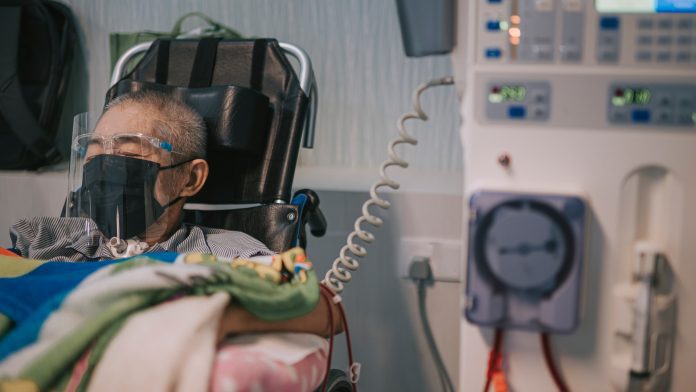
A team of international researchers has examined the efficacy of COVID-19 vaccines for patients undergoing dialysis treatment.
The study, led by experts at the Marien Hospital Hurne, a clinic of Ruhr-Universität Bochum, has investigated how proficient mRNA vaccines are at protecting patients who are receiving dialysis treatment from a range of Sars-Cov-2 variants.
The team ascertained people who regularly receive dialysis treatment form protective antibodies against Sars-Cov-2 far less frequently. However, many still do produce reactive T cells after being administered a COVID-19 vaccine, which can protect against severe infection from the Alpha or Beta variant.
The research, led by Professor Nina Babel from the Centre for Translational Medicine at Medical Clinic I of Marien Hospital Herne, is published in the Journal of American Society of Nephrology. Babel’s team cooperated with a dialysis centre in Schwerte and the renal centres KfH-Nierenzentrum Hagen and Bismarckstraße in Berlin to conduct their research.
Influence on the immune system
The immune system can be trained to remember specific pathogens after repeated contact with them, enabling the immune system to neutralise them before a severe clinical manifestation occurs. This is called immunological memory and can be achieved not only through contact with the naturally occurring pathogen but also through vaccination.
To comprehensively understand this process, the researchers analysed two of the immune system’s components in 34 patients who are experiencing dialysis treatment, observing their antibodies and Sars-Cov-2 reactive T cells.
The role of the antibodies is to identify pathogens after they enter the body, neutralising them before infection occurs, whereas T cells locate infected cells and perform measures to mitigate the condition and also protect against serious diseases. Patients who have chronic kidney failure and therefore need dialysis treatment are at an increased risk of developing severe COVID-19 infection.
Professor Timm Westhoff, Director at Medical Clinic I, commented: “The immune system of patients suffering from the end-stage renal disease is in a permanently hyperactivated state. As a result, they may build up poorer immune protection after a Sars-Cov-2 vaccination, which we have already observed with other vaccinations against viral infections.”
Performance of T cells
During the study, the team investigated the level of vaccine protection afforded to dialysis treatment patients from the Alpha and Beta variants, which were first described in Great Britain and South Africa. The results elucidated that only around one-third of the patients produced the necessary protective antibodies against the variants. However, over 80% of the individuals formed specific T cells that can also combat Sars-Cov-2 infection.
Professor Babel said: “Even though the majority of the patients we studied didn’t form antibodies against the new viral variants, our results suggest that a large proportion have sufficient reactive T cells to protect against severe Covid-19.”










